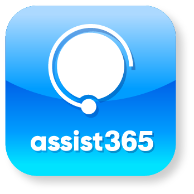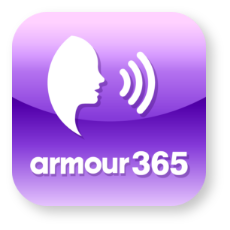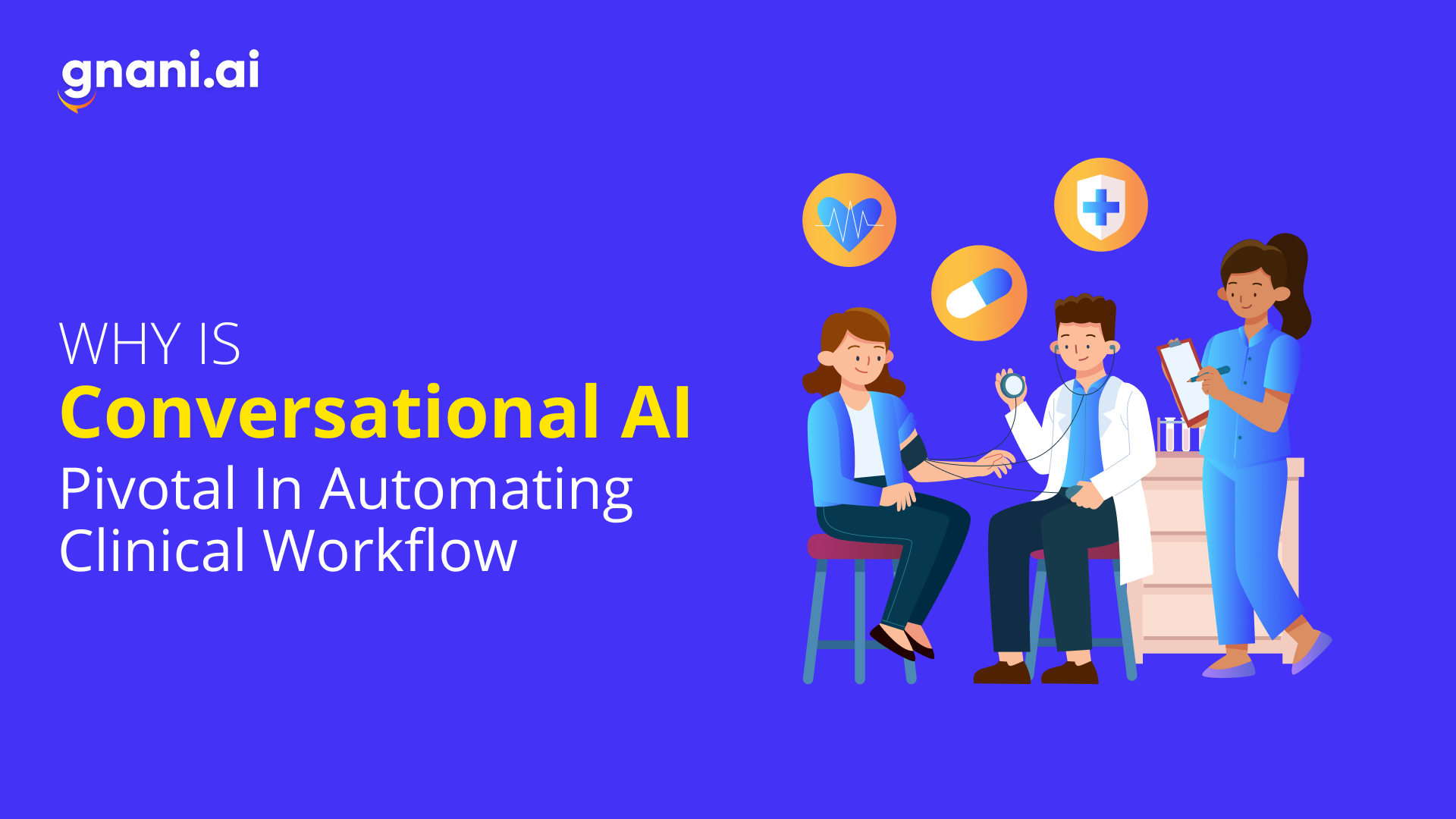Understanding The Importance Of Conversational AI In Clinical Workflow Automation
There have been tremendous advancements in conversational AI in healthcare since the medicos at MIT Laboratory demonstrated the superficiality of communication between humans and machines, and this happened as early as 1966. It was called ELIZA, a natural language processing computer program. Today, conversational AI can even simulate empathy over time, thereby encouraging people to talk freely about their health-related issues.
Given the fact that technologies like machine learning keep improving with time and data, the use cases and possibilities of conversational AI in healthcare are endless and exciting.
What’s The Extent Of Digitalization In Healthcare?
Information Technology (IT) is revolutionizing healthcare in ways that we would have never imagined. Digitalization of hospitals improves efficiency, efficacy, and the quality of service delivery. Although most hospitals are working on this, the approach taken is piecemeal. The need to develop a solid framework to address the planning and implementation of digitization of hospitals is necessary. It can result in a tectonic shift in the way care is delivered.
From healthcare centers to clinics, every corner in the healthcare sector is filled with data. Collecting data is pivotal for both healthcare providers and patients, but there is a problem:
What to do with all the data?
While collecting data is an ongoing affair, data and workflow management hasn’t been something that the healthcare industry has been successful at. Collecting data is one task, but analyzing them is no small feat. This is where healthcare providers should leverage AI.
Studies suggest that healthcare providers could save time, reduce human errors, create more accurate records, and provide better patient care by automating processes, i.e., healthcare or clinical workflow automation.
What Is Healthcare or Clinical Workflow Automation?
Healthcare or clinical workflow automation aims at improving the functionality of the healthcare system with the objective of streamlining the various processes involved to offer the best experience possible for the patients. Healthcare workflow automation focuses on processes in both operational and administrative ways.
The usage of technology to automate clinical workflows helps standardize high-volume workflows to improve efficiency in every way possible. By improving clinical or healthcare workflow, healthcare providers will be able to get things done in less time, communicate and collaborate efficiently to deliver better care for patients.
How Does Healthcare or Clinical Workflow Automation Help?
While there have been great innovations in healthcare, workflow automation is one area where there haven’t been a lot of uptakes. Let us look at some of the ways in which clinical workflow automation can be of huge help to the healthcare industry.
Increases interoperability:
APIs and AI solutions pull data from disparate systems, thereby improving operability between different systems. Plus, different departments in healthcare organizations can collaborate better to deliver optimum care to the patient.
Reduces call center costs:
Most of the questions that are routed to a call center are routine questions that can be handled with well-structured answers by a conversational AI.
Improves patient safety:
By automating data entry processes and using modern communication solutions, workflow automation reduces medical errors and improves patient safety.
Better resource planning:
The planning of staffing with the help of historical data reduces the administrative burden of staff.
Efficient communication:
Embracing a clinical communication and collaboration solution which supports voice calls, video calls, and text messaging improves efficiency by a huge margin.
Better patient throughput:
Admission and discharge are two areas where delays are experienced by patients. It can be frustrating for the patient and their family. Clinical or healthcare workflow automation ensures that it streamlines these processes and expedites them by automating approval, registration, billing, and other processes.
Conversational AI In Automating Clinical Workflow
Conversational AI in healthcare is rapidly growing every year. For conversational AI to be impactful in clinical workflow, it has to integrate with the existing workflows. The technologies which make automating clinical workflow a reality are the following: Automatic Speech Recognition (ASR), Machine learning, Natural Language Processing (NLP), and virtual assistants. The combination of these technologies solves some of the most pressing problems that hospitals face in streamlining their clinical processes.
Challenges Addressed by Conversational AI in Real-World Clinical Environments:
- Patients can reach out through any channel that they would like to, including voice, video calls, and text messaging
- Providing vernacular language support by making sense of different speaking styles, accents, and dialects
- Identify what is clinical conversation and what is not
- Ability to answer queries 24/7
- Getting the patient more engaged with self-assessment opportunities and alerting patients with timely reminders
- Capturing medical conversations accurately
- Understanding medical terminology
- Knowing where to place the content in a clinical capacity
- Pulling relevant conversations when there are multiple people in the same room
- Providing empathetic assistance during emergency
Conversational AI & Omnichannel Analytics For Healthcare
Conversational AI, supplemented by omnichannel analytics, improves healthcare services delivery by helping patients with detailed, unambiguous, and ratified information.
Conversational AI in patient engagement provides a smooth interaction between patients and healthcare professionals with the help of analytics based on previous conversations.
The conversational AI tool helps with order procurement, prescription automation, appointment booking, treatment guidance, verification support, and so on.
Here are some of the ways in which conversational AI, coupled with omnichannel analytics, improves clinical workflow:
- Pass information regarding treatments, hospitals, doctors, diseases, drug dosages, etc., to the patients directly.
- They get to book appointments with doctors and healthcare providers and even place orders for medicines.
- Helps simplify the healthcare journey for a patient by getting their treatment history and doctor’s notes.
- Provides a unified experience for the patient and reduces operational bottlenecks for healthcare providers.
- Since Conversational AI virtual assistants are scalable, they can manage peak hours efficiently.
- Provide uniform patient experience across all the channels and that too in an empathetic manner.
- Omnichannel analytics collects data from different channels and processes the information in a meaningful manner so that the hospitals can make faster and accurate decisions.
Clinical or Healthcare Automation Market in 2021
The global healthcare workflow solutions market accounted for US $8.26 billion in 2021 and is predicted to be worth around US $23.99 billion by 2030 with a registered CAGR of 12.6% during the forecast period 2022 to 2030.
As per reports, in 2021, the largest market for clinical workflow solutions was North America with a market share of 40.7% and the fastest growing market for the same was Asia Pacific (mainly China, India, Japan and South Korea) with a CAGR of 14%.
Conclusion
Conversational AI in healthcare is not only to answer basic queries of patients, but it is also to provide actionable and personalized interactions. The omnichannel analytics from conversational AI interactions offers valuable business intelligence that can be leveraged to optimize workflows and improve communication.
Would you like to work with a conversational AI-based virtual assistant to automate your clinical workflow? We will be more than happy to empower your healthcare center with Gnani’s solution.
Frequently Asked Questions
What is conversational AI in healthcare?
Conversational Artificial Intelligence (AI) has remarkably raised the service quality bar, by automating tedious processes. The AI technology enabled the healthcare workers to identify symptoms immediately and categorize critical patients from the less critical ones and plan the appointments accordingly.
What type of AI is used in healthcare?
A common use of artificial intelligence in healthcare involves NLP applications that can understand and classify clinical documentation.
How can AI help healthcare workers?
Using pattern recognition, AI can assist healthcare providers with more informed clinical decision-making and enable patients to take an active role in their own health. It can automate repetitive tasks, allowing healthcare providers to focus on higher-level cognitive tasks and patient care.





